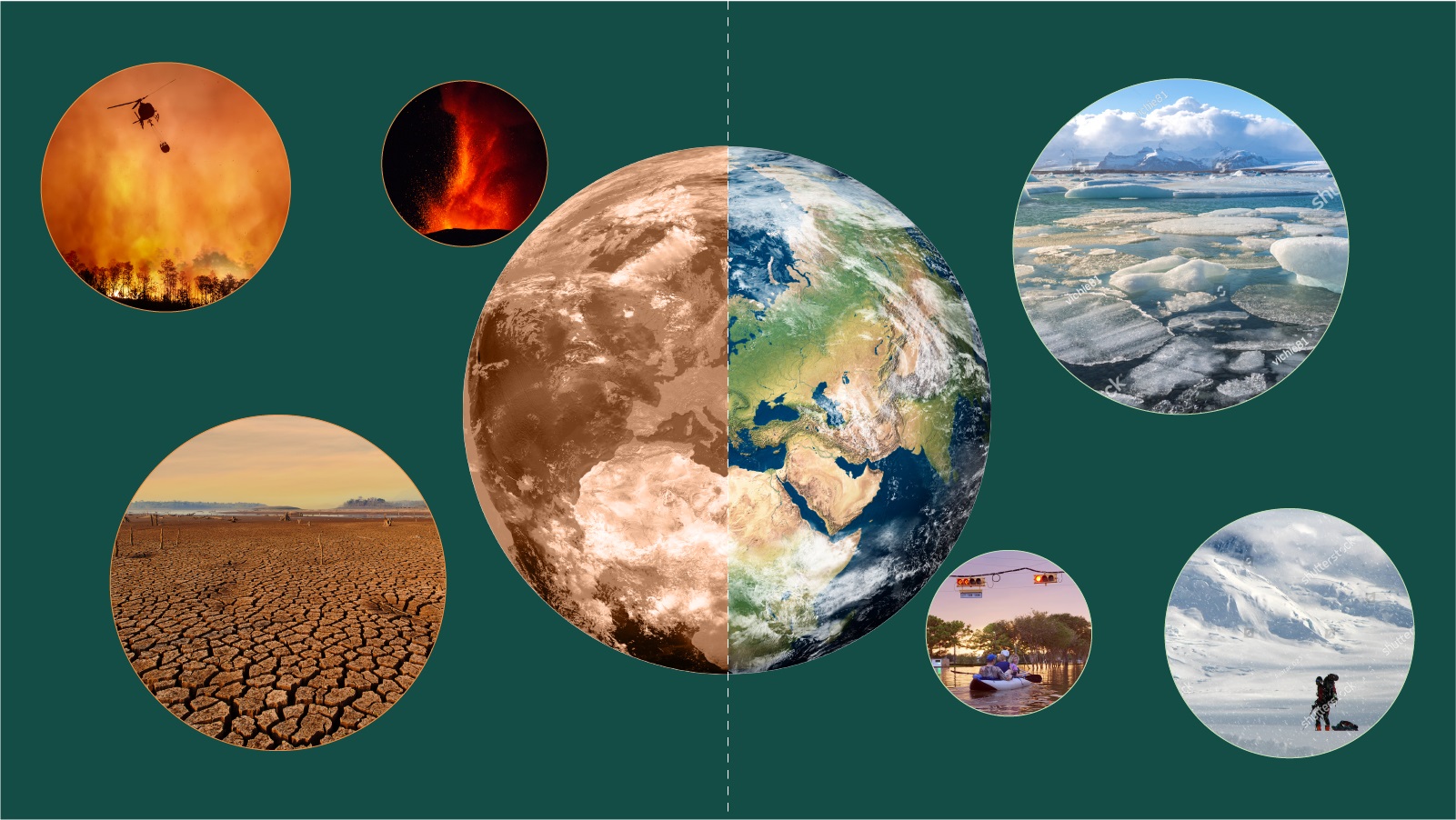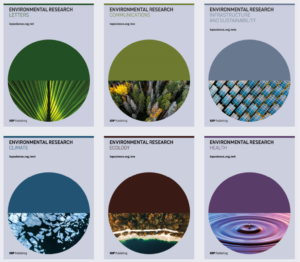ER系列特刊征稿|Focus on Natural Hazards, Disasters, and Extreme Events

特刊详情
客座编辑
- Tripti Bhattacharya,美国雪城大学
- Mikhail Chester,美国亚利桑那州立大学
- Vimal Mishra,印度理工学院甘地纳加尔校区
- Joy Jacqueline Pereira,马来西亚国民大学东南亚防灾研究所(SEADPRI-UKM)
- Jana Sillmann,挪威国际气候与环境研究中心
- 孙福宝,中国科学院地理科学与资源研究所
主题范围
This collaborative focus issue aims to bring together research articles, reviews, and perspectives, which provide a holistic view of extreme events in relation to climate change, human health and wellbeing, the built environment, infrastructure and ecology, biodiversity and conservation at the local, regional, and global scale. We encourage submissions that investigate the mechanisms behind extreme events, the vulnerability of our planet to natural hazards, and the environmental and/or social impact they have. We additionally welcome articles which present methods and tools for the prediction, determination and monitoring of risk, and papers on management, planning and adaptation at the local, national and international level towards a sustainable and resilient future.
Articles will be published in one of six participating fully open access journals, and authors can choose which journal to submit to. Please see below for the individual participatory journals and their article submission criteria.
- Environmental Research Letters (ERL):ERL is a high-impact Letters journal, intended to be the meeting place of research and policy communities concerned with environmental change and management. Articles should be focused on the impact and significance of results and be of interest and accessible to researchers working in other fields, appealing to the broad and multi-disciplinary readership.
- Environmental Research: Infrastructure and Sustainability (ERIS): ERIS is a unique outlet for the publication of multidisciplinary work on all facets of infrastructure, sustainability and resilience in their broadest sense, not just environmental assessment and protection but also economic and social factors.
- Environmental Research: Climate (ERCL): ERCL is a dedicated outlet for research addressing the causes, consequences and solutions of climate change and natural climate variability.
- Environmental Research: Ecology (ERE): ERE is devoted to addressing important global challenges at the interface of environmental science, large scale ecology, biodiversity and conservation in a way that bridges scientific progress and assessment with efforts relating to impacts of global change, resilience, mitigation and adaptation in the broadest sense.
- Environmental Research: Health (ERH): ERH is devoted to addressing important global challenges at the interface of the environment and public health in a way that bridges scientific progress and assessment with efforts relating to impact/future risks, resilience, mitigation, adaptation, security and solutions in the broadest sense.
- Environmental Research Communications (ERC):ERC welcomes all types of environment-related research, including disciplinary/interdisciplinary work, regional and local case studies, negative/null results and replication studies. The journal does not make a subjective assessment on the potential future significance and impact of a paper, instead it provides a platform for rapidly communicating research that meets high standards of scientific validity and rigour.
If an article submitted to one journal is found to be unsuitable for consideration, but suitable for the other, the assessing Editor will offer the author an opportunity to transfer their article. This means that duplication of peer review effort can be largely eliminated as a service to our authors.
投稿流程
特刊文章与Environmental Research系列期刊常规文章遵循相同的审稿流程和内容标准,并采用同样的投稿模式。
有关准备文章及投稿的详细信息,可以参阅IOPscience页面的作者指南。
作者可登入期刊主页进行在线投稿,在“文章类型”中选择“特刊文章”,并在“选择特刊”的下拉框中选择“Focus on Natural Hazards, Disasters, and Extreme Events”。
投稿截止日期:2023年12月31日。
期刊介绍

- IOP出版社环境研究领域期刊合集目前一共有六本期刊,涉及了环境科学的所有主要领域,分别是:Environmental Research Letters、 Environmental Research Communications、 Environmental Research: Infrastructure and Sustainability、 Environmental Research: Climate、Environmental Research: Ecology和Environmental Research: Health。IOP出版社通过提供优秀出版服务和高质量内容的组合,让世界各地的环境领域科研人员能够互相分享知识,解决当前最关键一些的问题,在长期支持可持续发展上加速取得突破。
